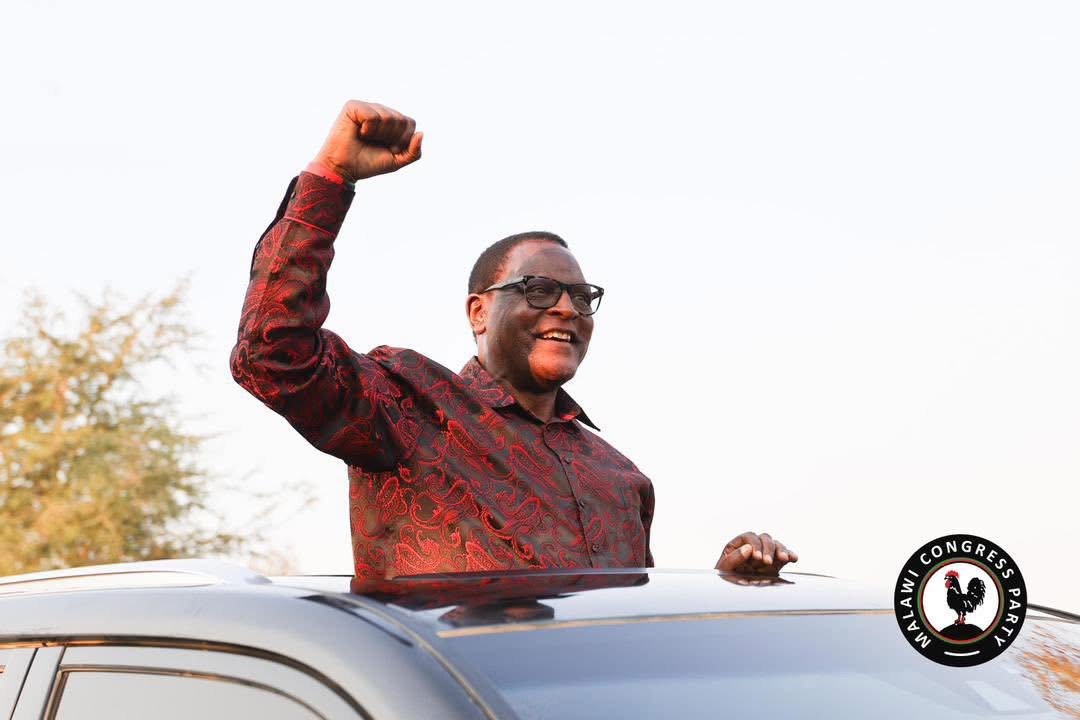
I still remember the fuel queues. Long lines of cars snaking around filling stations, people waiting for hours with no guarantee they’d even get a drop. Some joked about it, others argued in frustration, and many just sat quietly, tired of a life that felt harder by the day. Prices of everything skyrocketed, forex became as scarce as gold. These are some of the many vivid images of Malawi in the Chakwera years, 2020–2025, a country caught between hope and disappointment.
As a communications and media guy, I have to give credit where it’s due: the Chakwera administration probably had one of the best media teams Malawi has ever seen. The branding was sharp, the videos were clean, the speeches were polished, and the overall presentation of the presidency felt fresh and modern. If politics were won on PR alone, Chakwera would still be sitting on the throne today.
But media brilliance can only get you so far. Inspiring speeches and viral videos cannot erase the reality of citizens’ lives. Malawians don’t just vote for words; they vote for whether their cries are being heard.
In 2020, Malawians kicked out the old regime because they were frustrated, angry, and ignored. The streets, the villages, the urban youth, all were shouting for change. Chakwera became the vessel of that cry. He won not only because he promised hope, but because people were desperate to be heard.
Fast forward to his term, and the cries returned. The economy was biting. Fuel prices had surged by nearly 50% in 2024, unemployment was high, corruption scandals kept surfacing, and daily life grew harder for ordinary Malawians. Instead of decisive, people-centered leadership, what Malawians saw was silence, delay, and indecision. By the time speeches and promises returned, just nine to six months before the general elections, hearts had already hardened.
Things got so bad that his rival didn’t even need to campaign much. Chakwera’s own failures campaigned for the other team. No amount of media brilliance could save him. No amount of publicity stunts could mend broken hearts. It still blows my mind that, with all the weight of government machinery behind them, his camp still lost. That alone teaches you something: people are never to be taken for granted.
Indecisiveness cost him the throne. His kindness, combined with pressure from insiders, allowed corrupt networks to survive under his watch. Issues that could have been cut out early were left to rot. Like cancer, they spread quietly, stage by stage, until they reached stage 4 and by September 2025, it was too late to save his throne.
Yes, his administration faced storms beyond his control: the COVID-19 aftermath, global fuel hikes, food shortages, climate shocks, and ripple effects from international conflicts. But great leaders adjust quickly and shield their people from suffering. Chakwera adjusted for himself and his inner circle, while millions of Malawians bore the brunt of hardship.
The Bible reminds us that even Saul, once chosen and anointed, was rejected by God when he turned a deaf ear to His commands, and the kingdom was given to another (1 Samuel 15:23, 28). In the same way, Malawians refused to keep following a leader who no longer heard their cries. And so, on September 16th, 2025, they rejected him and handed the throne back to his rival.
At his core, Chakwera is a good man, many still believe that, as seen by the 1.7 million votes he got. But goodness alone does not sustain leadership. The presidency demands vision and execution, compassion and courage. When the same mistakes were repeated, when insiders grew stronger instead of weaker, and when forgiveness was stretched beyond its limit, Malawians had no choice but to move on.
His administration will probably be remembered for the facelift of the capital city among other developments , a few sweet fruits in what was largely a bitter fruit salad. The roads, a handful of visible projects, and a modernized Lilongwe gave a sense of progress, but those changes were not enough to outweigh the pain of empty pockets, endless queues, and broken promises. In the end, the bitter taste lingered longer than the sweet.
In many ways, Chakwera reminds me of Samson, a man full of strength, potential, and vision. But constant neglect, misplaced trust, and repeated mistakes slowly cut off his power. Just as Samson lost his strength when he ignored the warnings around him, Chakwera’s ability to lead effectively was diminished by ignoring the cries of the people he served. Even the strongest can fall when vigilance, discipline, and decisive action are missing.
So what happened on September 16th 2025 was not really about appointing another leader. It was more so an elimination of the one they no longer trusted. Branding can polish your image, and speeches can move a crowd, but angry and hungrly voters don’t fall for PR stunts, they express their pain on that ballot paper and paint the whole Malawi Blue echoing disappointment and hope at the same time.
And to the incoming administration , what a great comeback. Congratulations. Let this and 2020 serve as a reminder. Malawians will clap for speeches, they will smile at promises, they will be hopeful but they will not be fooled twice. Lead with action, cut out the cancers early, put the people first or you too will be rejected. Make no mistake, power comes from the people. When they rise, no machinery, no media brilliance, no campaign can stand against their cry. And remember this: this time, Malawians won’t wait five years. The moment they feel taken for granted, they will act because once you have lived through pain, you don’t allow it to repeat.

Leave a Reply